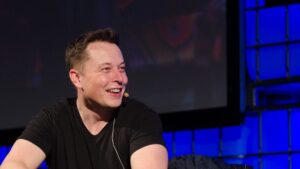Elon Musk: Balancing Government Aspirations and Business Commitments
Elon Musk, the visionary behind companies like Tesla, SpaceX, and X (formerly Twitter), has recently found himself at the intersection of government and business. As he steps into a significant role, leading the newly established “Department of Government Efficiency” under former President Donald Trump, questions arise about the potential impact on his various enterprises. His father, Errol Musk, shared insights that help illuminate this precarious situation, raising essential points that every investor should consider.
A Pivotal Government Role
Elon Musk’s appointment alongside Vivek Ramaswamy to spearhead the presidential advisory commission on government efficiency reflects a fundamental shift in Musk’s career. The commission’s goal is ambitious: to minimize waste, eliminate unnecessary bureaucracy, and enhance the operational efficacy of federal agencies. However, while the task ahead could potentially reshape public sector operations, it also poses a dilemma for an entrepreneur who has revolutionized multiple industries.
Errol Musk’s Concerns
In recent remarks, Errol Musk expressed mixed feelings about his son’s new position. While he acknowledged that the role is significant, he expressed concern over the potential detriment to Elon’s existing commitments. Errol highlighted that Musk’s schedule is already overloaded with responsibilities tied to his companies, maintaining that “Elon has a tremendous task on his hands.” With hundreds of thousands of employees under his purview, the concern is clear: can one individual juggle the demands of both government and corporate leadership effectively?
The Challenge of Time Management
The crux of the issue lies in time allocation. Errol noted that if Elon were to be required to attend board meetings less frequently or step away from critical decisions to attend to government affairs, it would indeed raise “a big concern.” The idea of Musk being confined to an office in Washington D.C., waiting for directives, is not something Errol considers viable. He emphasized the necessity for Elon’s role in government to be advisory rather than full-time, allowing him to remain engaged with his businesses.
A Legacy of Efficiency
One cannot overlook Elon Musk’s track record of transforming underperforming companies into profitable ventures. Errol cited the drastic staff reductions at X, where Musk trimmed the workforce from 8,500 to about 1,000 yet managed to enhance productivity significantly. This feat speaks volumes about his capabilities in improving organizational efficiency—a skill that could serve him well in his government role. This might imply that Musk could implement similar strategies in a broader context, potentially bringing private-sector efficiency into public governance.
Investment Prospects and Considerations
For investors closely following Musk’s journey, this transitional phase raises important considerations. If Elon can effectively navigate these dual responsibilities without compromising his businesses, the outlook for companies like Tesla and SpaceX could remain immensely positive. However, any indication that Musk’s public commitments detract from his corporate acumen could shake investor confidence and potentially impact market valuations.
In conclusion, as Elon Musk embarks on this dual path between government and entrepreneurship, the balance he strikes will be crucial. While his father’s concerns are valid, it’s also clear that Musk has a unique ability to innovate and optimize. Investors should keep a keen eye on how this dynamic unfolds, as its outcomes could forecast broader implications for both political and corporate spheres.
Stay tuned to Extreme Investor Network for more insightful analyses and updates on the unfolding narrative surrounding one of the most influential figures of our time.

